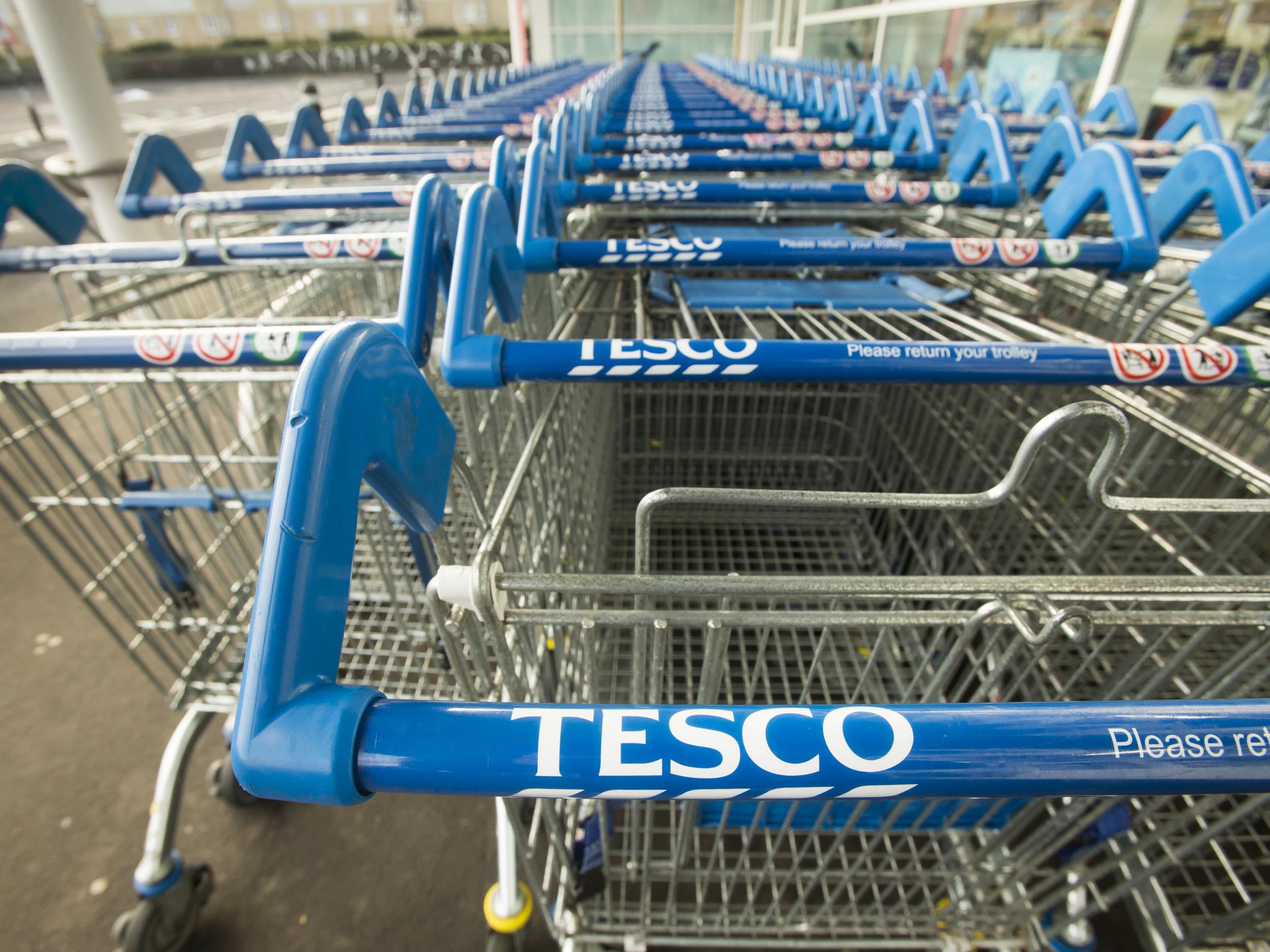Tesco reports £1.28bn annual profit and first full year of growth since 2010
Retailer reports net debt for the financial year is down 27% and says it hopes to cut costs by £1.5bn in coming year

Your support helps us to tell the story
From reproductive rights to climate change to Big Tech, The Independent is on the ground when the story is developing. Whether it's investigating the financials of Elon Musk's pro-Trump PAC or producing our latest documentary, 'The A Word', which shines a light on the American women fighting for reproductive rights, we know how important it is to parse out the facts from the messaging.
At such a critical moment in US history, we need reporters on the ground. Your donation allows us to keep sending journalists to speak to both sides of the story.
The Independent is trusted by Americans across the entire political spectrum. And unlike many other quality news outlets, we choose not to lock Americans out of our reporting and analysis with paywalls. We believe quality journalism should be available to everyone, paid for by those who can afford it.
Your support makes all the difference.Tesco has reported a £1.28bn annual profit, narrowly beating analyst expectations after a tumultuous few years.
The retailer on Wednesday said that group sales for the 2016/2017 financial year rose 4.3 per cent to £49.9bn and in the UK, like-for-like sales added 0.9 per cent, meaning the company had its first full year of growth since the 2009/2010 period.
“Today our prices are lower, our range is simpler and our service and availability have never been better,” said Dave Lewis, Tesco’s chief executive.
“Our exclusive fresh food brands have strengthened our value proposition and our food quality perception is at its highest level for five years,” he said. “At the same time, we have increased profits, generated more cash and significantly reduced debt.”
Mr Lewis added said that the company is now ahead of where he had expected it to be at this stage and that he was confident that the group would be able to “build on this strong performance in the year ahead”.
In January Tescp announced its intention to merge with wholesaler Booker in a £3.7bn deal that would create Britain’s leading food business.
Several major shareholders have publicly spoken out against the proposed deal, but on Wednesday Mr Lewis underscored the benefits that he sees in a tie-up, saying that a deal would “bring together two complementary businesses, driving additional value for shareholders by realising substantial synergies and enabling us to access the faster-growing ‘out of home’ food market.”
The group reported that net debt for the financial year had fallen by 27 per cent and that it intended to continue to cut costs by £1.5bn in the coming year.
Tesco has had a turbulent few years, plagued by a major accounting scandal, and shares fell again on Wednesday’s results, taking losses for the year to around 10 per cent. But some strategists said that they now see value in the stock.
“Improvements in product availability and customer service have both contributed to a good set of full-year results released this morning,” said Chris Beckett, head of research at investment management group Quilter Cheviot, adding that “management actions to reduce complexity and cost within the business are paying off.”
He said that he now believes the stock has strong recovery potential and a management team capable of delivering it.
According to analysts at UBS, Tesco’s recovery is “sustainable” and a merger with Booker would present growth opportunities, especially in the convenience market.
In September 2014, the supermarket admitted that it had identified a £250m overstatement of first-half profits for that year.
The supermarkets watchdog later found that Tesco had deliberately and repeatedly withheld money owed to suppliers to boost its sales performance artificially, in a serious breach of regulations.
Scores of investors sued the company as a result of a dramatic fall in the group’s share price, alleging they lost millions because they bought shares on the basis of misleading accounts.
More recently, though, the company has managed to move on from that. It’s focused hard on reviving its main grocery business in its home market, selling its South Korean business and divesting in Turkey too. It’s also sold off its Giraffe restaurant chain.
Late last year market researcher Kantar Worldpanel said Tesco’s sales were rising at the fastest pace for three years.
Join our commenting forum
Join thought-provoking conversations, follow other Independent readers and see their replies
Comments